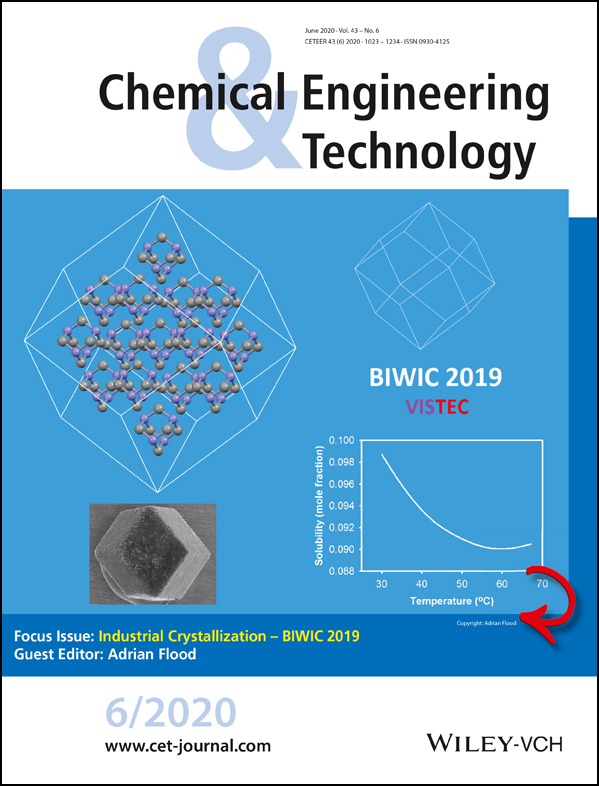Effect of Ultrasonic Irradiation on the Probability of Primary Nucleation of L-Arginine Hydrochloride
Abstract
Most of the amino acids that are utilized as medical raw materials and food additives show polymorphism. To improve the functionality of amino acid crystals, an effective method of polymorph control is required in the crystallization process. Here, primary nucleation of L-arginine hydrochloride by ultrasonication was investigated. L-Arginine hydrochloride exhibits polymorphism, and it crystallizes into three distinct crystal forms. A cooling crystallization experiment was performed, and nucleation of each polymorph upon ultrasonication was observed. In addition, the nucleation was analyzed using the nucleation probability theory. The results indicate that ultrasonic irradiation would significantly induce the nucleation of a particular polymorph.




